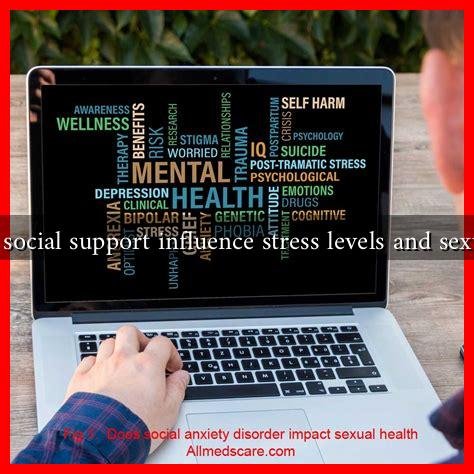-
Table of Contents
How Does Social Support Influence Stress Levels and Sexual Health?
In today’s fast-paced world, stress has become a common experience for many individuals. The impact of stress on overall health is well-documented, but one area that often gets overlooked is its influence on sexual health. Social support plays a crucial role in mitigating stress and enhancing sexual well-being. This article explores the intricate relationship between social support, stress levels, and sexual health, providing insights into how these elements interact.
The Role of Social Support in Stress Management
Social support refers to the emotional, informational, and practical assistance provided by friends, family, and community. It acts as a buffer against stress, helping individuals cope with life’s challenges. Research has shown that strong social networks can significantly reduce stress levels. Here are some key points regarding the role of social support in stress management:
- Emotional Support: Having someone to talk to can alleviate feelings of isolation and anxiety. Emotional support from loved ones can provide comfort during stressful times.
- Informational Support: Friends and family can offer advice and guidance, helping individuals navigate stressful situations more effectively.
- Practical Support: Assistance with daily tasks can reduce the burden of stress, allowing individuals to focus on their mental well-being.
A study published in the Journal of Health Psychology found that individuals with strong social support reported lower levels of perceived stress and better overall health outcomes. This highlights the importance of fostering social connections to manage stress effectively.
Stress and Its Impact on Sexual Health
Stress can have a profound effect on sexual health, influencing libido, sexual performance, and overall satisfaction. When individuals experience high levels of stress, their bodies produce cortisol, a hormone that can disrupt sexual function. Here are some ways stress can impact sexual health:
- Decreased Libido: Stress can lead to a reduced interest in sexual activity, as individuals may prioritize coping with stress over intimacy.
- Performance Anxiety: High stress levels can result in anxiety about sexual performance, leading to a cycle of stress and sexual dysfunction.
- Relationship Strain: Stress can create tension in relationships, making it difficult for partners to connect emotionally and physically.
According to a survey conducted by the American Psychological Association, nearly 30% of respondents reported that stress negatively affected their sexual relationships. This statistic underscores the need for effective stress management strategies to promote healthy sexual functioning.
The Interplay Between Social Support, Stress, and Sexual Health
Social support not only helps reduce stress but also plays a vital role in enhancing sexual health. The interplay between these factors can be understood through the following points:
- Improved Communication: Social support encourages open communication about sexual health, leading to better understanding and intimacy between partners.
- Increased Resilience: Individuals with strong social networks are often more resilient in the face of stress, which can lead to healthier sexual relationships.
- Shared Experiences: Engaging in social activities can provide opportunities for bonding and intimacy, which are essential for sexual health.
A case study involving couples therapy highlighted that couples who actively sought social support reported improved sexual satisfaction and reduced stress levels. This demonstrates the importance of community and connection in fostering both emotional and sexual well-being.
Conclusion
In conclusion, social support plays a critical role in influencing stress levels and sexual health. By providing emotional, informational, and practical assistance, social networks can help individuals manage stress more effectively, leading to improved sexual functioning and satisfaction. As stress continues to be a prevalent issue in modern society, fostering strong social connections should be a priority for individuals seeking to enhance their overall well-being. By recognizing the interconnectedness of social support, stress, and sexual health, we can take proactive steps toward a healthier, more fulfilling life.

